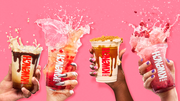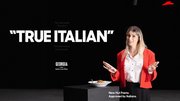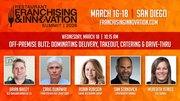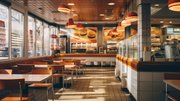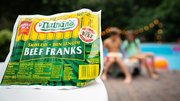Article
Forecasting: McDonald's quest for beverage domination
The burger giant will succeed with its barbell beverage strategy. What does this mean for competitors?

May 26, 2010
This summer, McDonald's is launching beverage promotions on both ends of the spectrum. On one end, the new $2.79 Frappe is an extension of its much heralded McCafé specialty coffee platform. That rollout coincides with the significant discounting of its Coca-Cola dispensed soft drinks priced at $1.00 for any size ($0.79 for a 42-ounce in Southern California).
This is a new twist in the ubiquitous barbell strategy coined primarily for a simultaneous premium and value food offering. McDonald's barbell beverage strategy, featuring McCafé premium priced specialty coffees and low priced dispensed soft drinks, is a recipe for incremental transactions at the expense of nearly every other competing food and beverage brand.
So that leads us to the following:
Question: Can your brand match McDonald's McCafé specialty coffee platform?
Answer: Probably not.
Question: Can your brand match the $1.00 dispensed soft drink?
Answer: Could, probably should (try), but likely won't, until you have to.
Question: Can McDonald's succeed with this beverage barbell strategy?
Answer: Definitely.
McDonald's McCafe strategy
Quick-service restaurants rarely have a competitive menu advantage. Typically, once a specific menu item succeeds with one brand, it is sure to be copied by every other competitor (e.g. salads, chicken sandwiches, big burgers, value menus, etc.).
McDonald's has set the bar expensively high for any QSR 'copycats' who might be pondering a specialty coffee program. Most competitors don't have the cash flow to afford basic re-imaging on a large scale much less the investment needed to mirror McDonald's massive overhaul of their operations, menu and restaurant facilities.
McDonald's assault on Starbucks and all other coffeehouses was brilliant. It's a high profit-growing category. Throw in a recession, and McDonald's lower priced offerings become increasingly appealing so that a $2.79 Frappe seems like a great deal.
Fortunately, with coffeehouse prices north of $3, McDonald's can make a nice margin with Frappes priced at $2.79. Additionally, a guest entering McDonald's is rarely weighing the option of purchasing a soft drink or a Mocha Frappe. It is this great disconnect that allows the barbell strategy to effectively produce both profits and transaction growth.
$1.00 any size soft drinks strategy
McDonald'slow priced dispensed beverage strategy causes heartburn for all competitors. Beverages mean profit; a lot of profit and only an idiot would lower the price. McDonald's is no idiot. McDonald's is no longer treating beverages as a commodity. It's now a reason to turn into their parking lot vs. driving to 7-Eleven, Burger King or Jack in the Box.
Let's start with the beverage pricing trend. A lot of press coverage has focused on the decline in consumption of carbonated beverages. Could part of this decline be the ever increasing menu prices charged at restaurants (not to mention grocery stores)?
Pricing decisions within the restaurant category are too often a herd mentality, based on matching the ridiculous prices of the competition. It is not uncommon to see the smallest sized beverage priced at $1.59 or higher. Why would any guest want to buy a 20-ounce beverage for $1.59 when double cheeseburgers are priced at $1? This is a bad disconnect, and guests are opting out of beverages, with nearly every brand experiencing a decline in beverage incidence.
Certainly most management teams have penciled out the break-even on McDonald's dollar beverage strategy and can't justify a parallel program — much less convince a rattled franchise community to drop the price on one of the few menu item where profitability remains strong.
But what good is great menu item profitability if you continue selling fewer and fewer of those items?
McDonald's strategy is not as scary as it looks, but they want you to believe it is unless you 'jump in' and create a beverage war.
What about combo revenues? Combos are the only restaurant transaction that guarantees a beverage sale.
McDonald'scombo prices have moved up significantly over the past several years (as have the sandwich and fry components), and the built-in combo discount does not require further discounting for the $1.00 beverage offer (nor does it require discounting the combo in California for the $0.79 42oz beverage).
In other words, the $1.00 beverage has no impact on combo revenues. The only time it affects profitability is if guests order a small combo and insists on a large-sized beverage. This does not occur as often as you might think, and the incremental costs are only approximately 15 cents, which isn't a significant issue on a high profit $7.00 combo.
Industry impact
A la carte beverage sales are in massive decline, again, due to ridiculously high menu prices and cheaper alternatives (e.g. tap water). McDonald's $1.00 any-size promotion makes all competitive prices look even more expensive, which will lead to further beverage menu mix declines.
McDonald's knows that one incremental $5.00 transaction due to their $1.00 beverage promotion will pay for roughly five reduced-priced beverages that 'might' have been purchased at $1.59.
More importantly, the $1.00 beverage promotion is designed to motivate 'cherrypickers' (non-combo customers) to purchase a $1.00 beverage when normally the $1.59 price point would have been excluded from the transaction. It's far better to make 70 cents on a dollar beverage sale than to have no beverage revenue/profitability at all.
Yes, having guests move from $1.59 to $1.00 is painful. But do the math; your incidence of full priced beverages is likely declining. The risks of not attempting a value beverage initiative (and there are scores of other beverage value iterations) is likely higher than maintaining a cavalier position of not giving in to beverage discounting.
McDonald's wants to be the first consideration when anyone thinks of a destination to fill their hungry appetite or quench a thirst. McDonald's has elevated every menu item as a potential destination purchase that provides great menu value. Consumers vote with their pocketbooks, and they are increasingly voting for McDonald's.
Can any competitor afford beverage complacency? Burger King's upcoming $1 Icee promotion, which launched this week, may provide an impetus to extend the discount to all beverages. If another major QSR restaurant chain jumps into the $1.00 beverage game, then all other brands must respond in some (if not like) kind quickly.
Oh yeah, Jamba Juice, McDonald's has plans to take away some of your business soon.
*Stuart Morris owns and operates QSR Consulting Group Inc., which assists brands by creating profit-driven strategies that leverage core competencies.
 ChatGPT
ChatGPT Grok
Grok Perplexity
Perplexity Claude
Claude